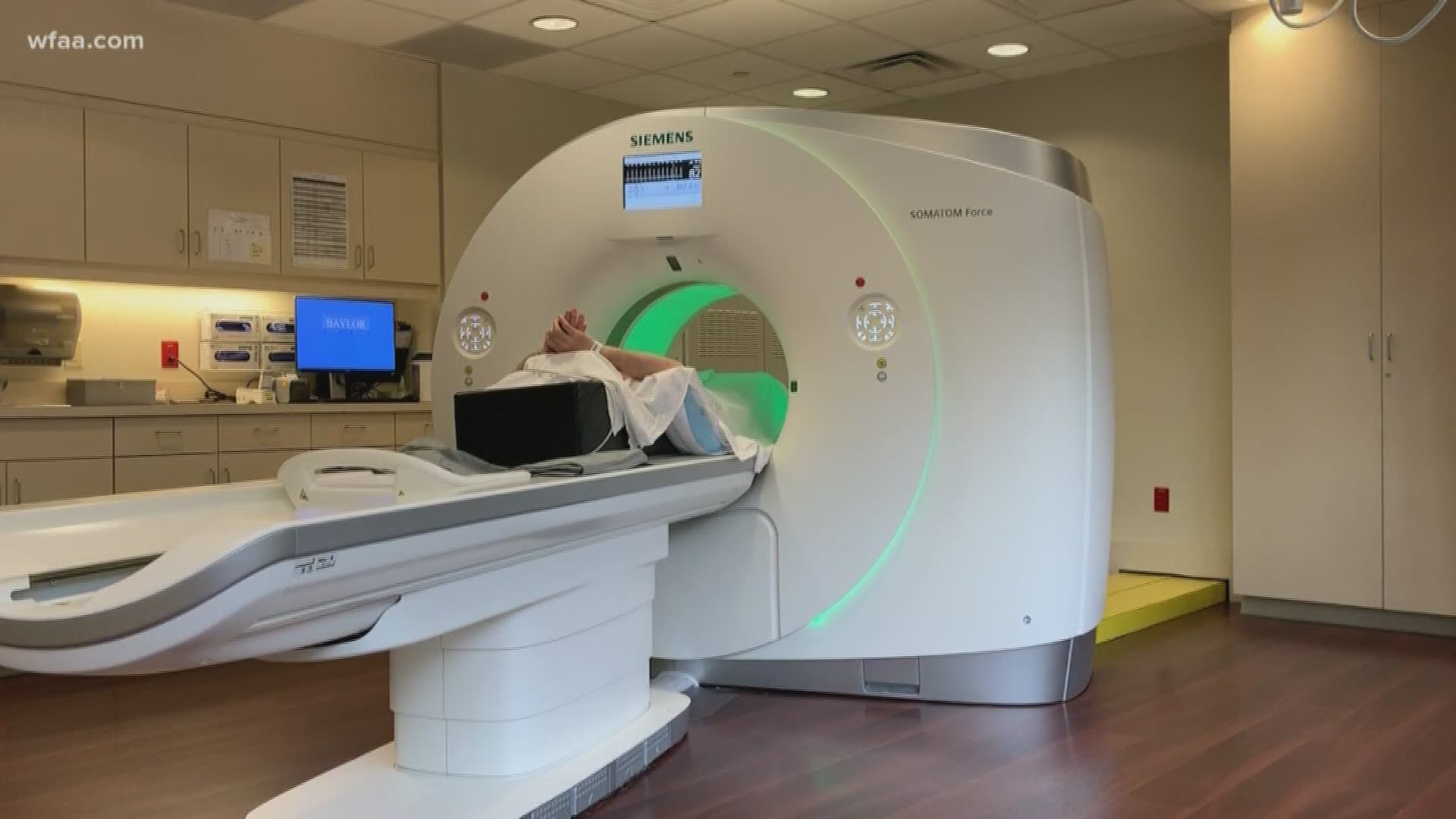Have you ever heard of a coronary calcium test before?
It’s essentially a very fast CT scan of the heart, immediately revealing to doctors whether you have plaque build up in your arteries, which puts you at a higher risk for a heart attack.
Patients lay flat on a machine while wearing their regular clothes, slide through the scanner that looks much like an MRI, are prompted to breathe, and in a few minutes, it’s all done.
Mike Schultz was recently getting ready to have a scan for the first time to determine his coronary calcium score, or how much plaque he has in his arteries.
“[I’m] just a little concerned because I do have family history on my mother’s side,” said Schultz, 52. “She’s had some heart surgery in the past.”
After the scan, you receive a number called a 'coronary calcium score.' Those scores range from zero and up.
“Everybody wants to walk out of here with a score of zero, meaning they’ve got no calcified plaque,” said interventional cardiologist Jeff Schussler.
While a high score doesn’t necessarily mean a patient will have a heart attack, it does put him or her at a higher risk for one.
“They may find that they have more plaque than they thought,” said Schussler, who works with the Baylor Scott & White Heart and Vascular Hospital in Dallas. “But these [scans] are for people who feel fine, who just want more insight into whether or not they have plaque well before they actually have an event.”
Cholesterol deposits cause plaque to build up. Over time, that can harden or become ‘calcified,’ leading to the narrowing of the arteries.
“Plaque can rupture… shut down the artery and cause a heart attack,” Schussler explained.
For some people, this quick screening is one way to keep from getting to that point.
“You have to be of a certain age… for men… 45, for women, age 50, with at least one risk factor,” Schussler said. “Whether that’s high blood pressure, diabetes, history of smoking, or family history, there should be some reason why it makes sense to look.”
Within minutes of his scan, Schultz’s results came back. His score turned out to be zero, meaning the scan detected no calcified plaque in his arteries.
“Absolutely relieved,” Schultz said. “Glad it was a zero. That means it’s clean, according to the doctor, so that’s good.”
The knowledge made him feel at ease.
“That’s the part of healthcare that I think is hard- not knowing results," Schultz explained. "And if you walk away from it right now knowing what your score is, that’s a relief.”
Coronary calcium tests are elective and often not covered by insurance. The scans are usually less than $100 out-of-pocket. And patients generally can order the tests themselves without going through their primary care physician.
The scan, though, is not beneficial for those who are already experiencing symptoms of heart disease.

